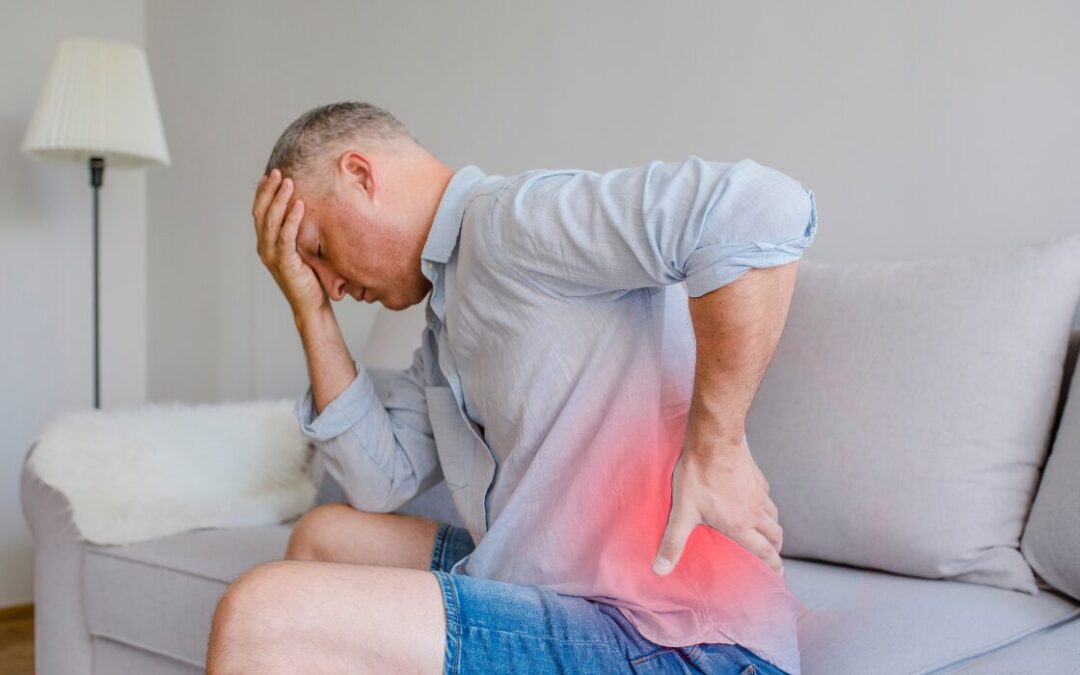Dehydration is something that takes place for all of us sometimes, but for older human beings, it can be a silent villain that causes all types of health illnesses, including lower back aches, fatigue, and sluggishness. You can no longer understand it; however, failing to drink enough water will exacerbate your backache. In this article, we are going to see how dehydration and returned ache pass hand in hand, in particular with seniors, and what can be executed approximately.
How Dehydration Affects the Spine and Muscles
Your spine depends upon water to preserve its discs in a hydrated and wholesome condition. When you are dehydrated, the discs in your vertebrae lose water, and they become less bendy and at risk of injury. This will bring about pain, stiffness, and pain, especially in the lower back.
Dehydration additionally occurs in muscle tissue and ligaments. While muscles are dehydrated, they settle and are greater prone to strain and spasms. This results in further returned pain, and it becomes even more difficult for the elderly to transport around and be at ease.
Symptoms of Dehydration-Induced Back Pain
A few symptoms to watch out for indicating dehydration might be causing your back pain are:
- Lower back pain that persists, particularly after activity.
- Back muscle spasms or cramps.
- Back stiffness, especially in the morning or after sitting for extended periods.
- Fatigue or weakness that can exacerbate back pain.
If you experience any of these, dehydration might be contributing to your pain.
Other Causes of Back Pain in Older Adults
Although dehydration cause back pain, keep in mind that it’s not the sole contributor. Older adults can also suffer from back pain because of:
- Arthritis, or degenerative disc disease.
- Poor posture or lack of physical activity.
- Previous injuries or surgeries.
- Weight gain or obesity, which adds extra pressure to the spine.
That is why it is necessary to consider the larger picture when dealing with back pain.
The Role of Hydration in Spinal Health

Healthy spinal discs are maintained by means of right hydration, which keeps them properly lubricated and surprise-soaking up. Actually, studies show that our bodies embody about 60% water, and this water is wanted for lots of our body’s talents, which incorporate spinal health.
Even as older adults drink enough water, it minimizes infection and keeps muscle agencies in acceptable running order. Hydration additionally plays a crucial thing in normal joint health, supplying fluid that cushions the joints and forestalls pain and stiffness.
Solutions for Preventing Dehydration-Related Back Pain
The better news is that avoiding dehydration-related back pain does not have to be tricky. Here are a few easy solutions:
- Drink Water Regularly: Try to drink a minimum of 8 cups of water per day, or more if you are physically active or reside in a hot environment. Drink at least 1 gallon of water per day.
- Eat Hydrating Foods: Fresh fruits and vegetables such as watermelon, cucumbers, and oranges are full of water and can contribute to maintaining adequate hydration. Your diet should be 70% water-rich. Soda, Coffee, and tea dehydrate your body.
- Limit Caffeine and Alcohol: These both dry out your body, so it’s best to have water with caffeinated or alcoholic beverages.
- Monitor Your Hydration: If you’re not sure whether you’re drinking enough water, try a hydration tracker or just keep an eye on the color of your urine—light yellow or clear is a good indication you’re getting enough hydration.
How Much Water Should Older Adults Drink?
The general guideline is to drink 8 cups of water daily. However, older adults may need more depending on their health, diet, and activity level. The Institute of Medication shows complete consumption of approximately 3.7 liters (about 15.5 cups) for men and multiple 7 liters (approximately eleven. five cups) for women. Concentrate on your frame, even though, and drink more or much less depending on your experience of the way you feel.
Nutrition and Hydration for Healthy Aging
Good nutrition accompanies the right hydration. An overall healthy weight loss plan of vegetables, lean proteins, and entire grains can promote desirable fitness and useful resources in infection that results in lower back aches. Omega-3 fatty acids, present in fish, which includes salmon, can provide anti-inflammatory effects for individuals with chronic back pain.
When to See a Doctor for Back Pain and Dehydration
If you have chronic back pain or if your dehydration doesn’t respond to more water, it’s time to consult a physician. A doctor can help determine if your back pain is due to dehydration. They can also check for other causes like arthritis or a herniated disc.
Conclusion
Dehydration cause back pain in the elderly. By drinking sufficient water, seniors can assist in maintaining spinal fitness, alleviate muscle stiffness, or even relieve back pain. Drink plenty of water, devour a healthful weight-reduction plan, and check your hydration tiers for the most excellent consequences. In doing so, you can keep your lower back pain unfastened and feature a more energetic, comfortable lifestyle.
FAQ’s
Can dehydration cause chronic back pain?
Yes, dehydration can cause chronic back pain by influencing spinal discs and muscles to become more susceptible to injury and stiffness.
How do I know if dehydration is causing my back pain?
If you are experiencing muscle cramps, stiffness, or ongoing pain after exercise, dehydration may be the cause.
What is the best way to stay hydrated as an older adult?
Drink water regularly during the day, consume water-dense foods such as fruits and vegetables, and do not dehydrate drinks such as caffeine and alcohol.
When should I seek medical help for back pain and dehydration?
If your back pain does not go away even after being hydrated or if you have severe symptoms, it is best to see a doctor for proper diagnosis and treatment.

